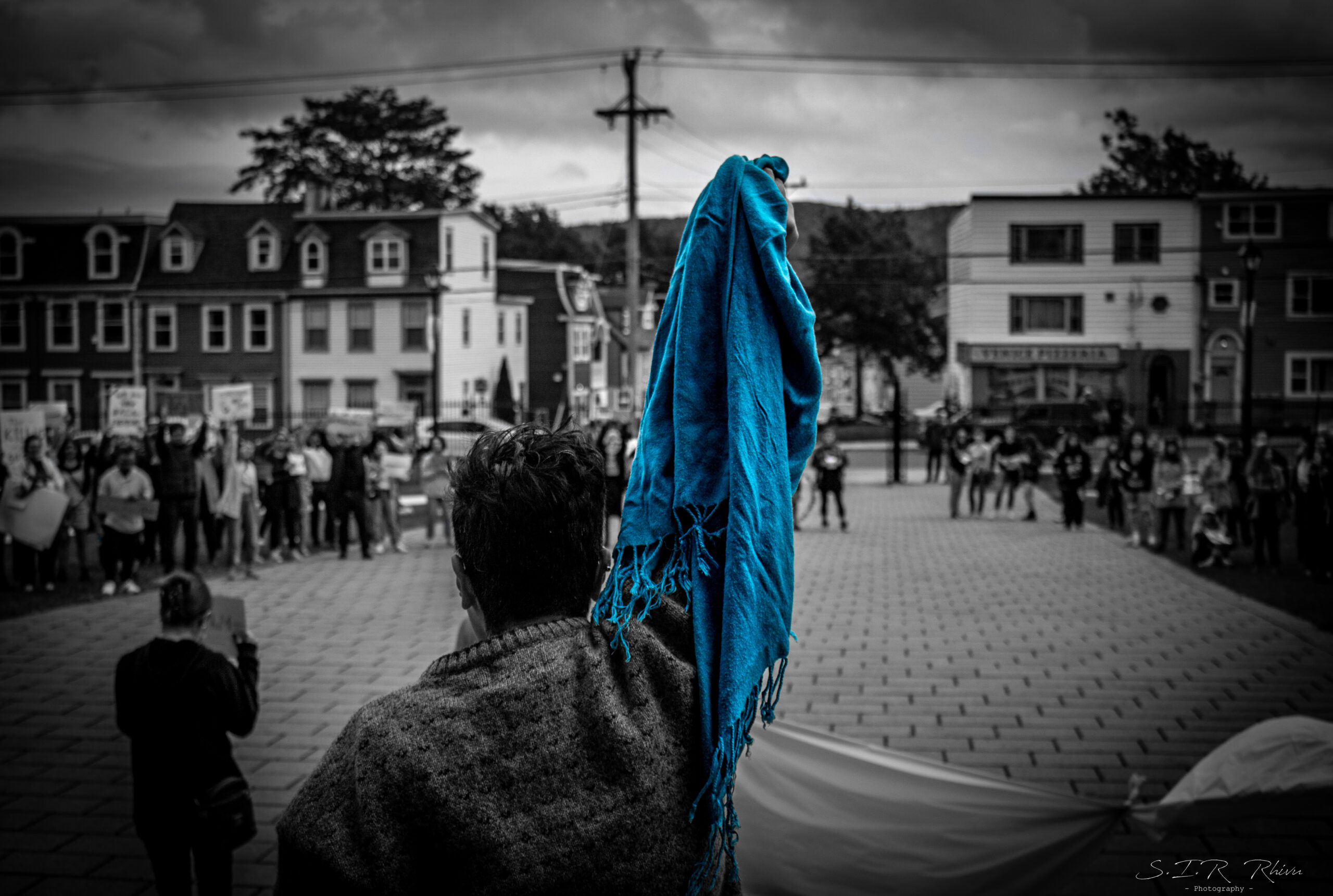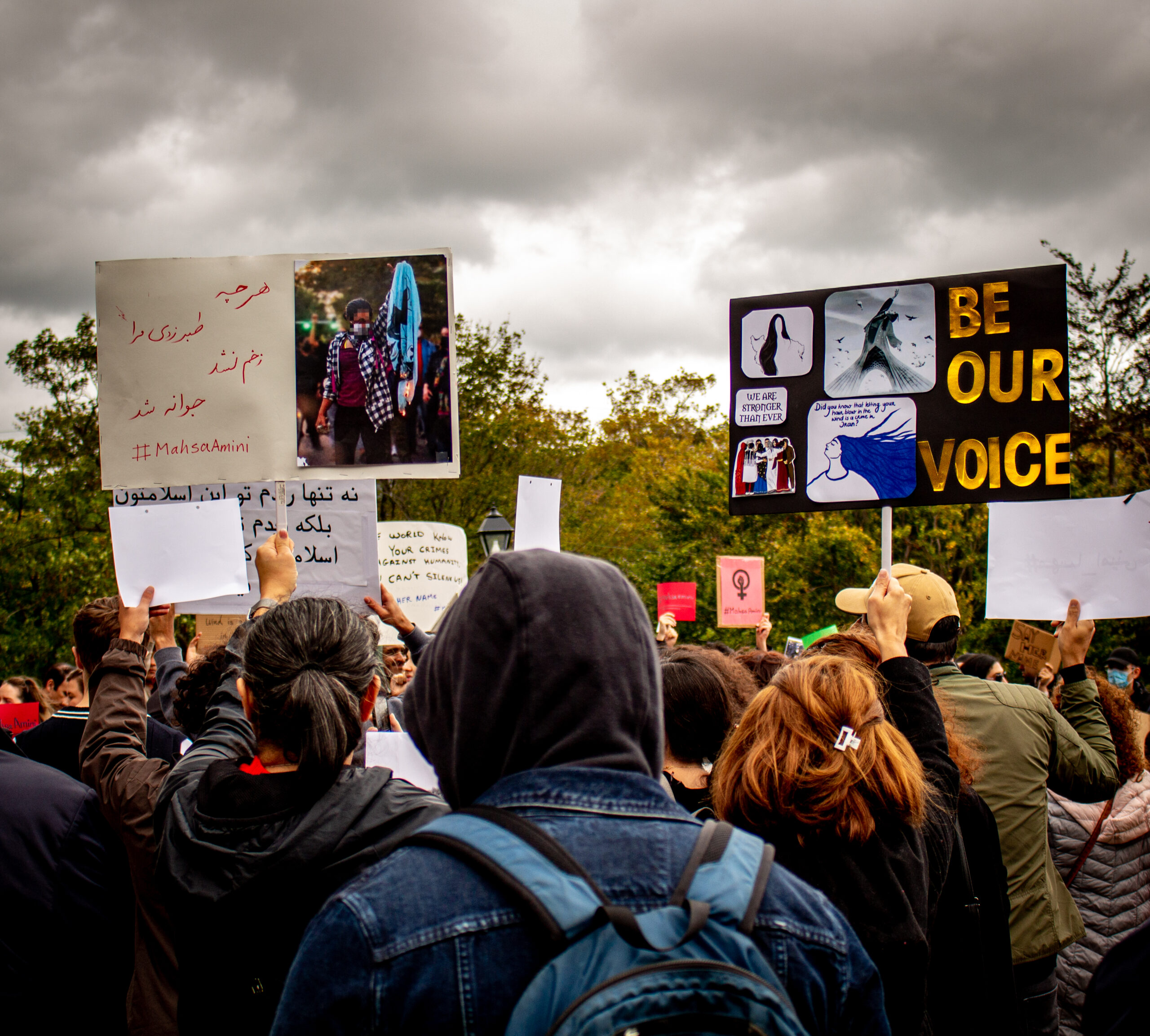For a young Iranian girl, coming to Canada meant freedom and a new hair colour.

Sakib Ibn Rashid Rhivu
Kicker News
After arriving in Canada last year from Iran, Leila Azadeh did not want to visit Niagara Falls or go to the CN Tower. She just wanted to dye her hair red.
“I am from such a place where you could be killed for showing a little strand of your hair, let alone dying it,” Azadeh said.
The 18-year-old moved to Canada with her family last year. She says this completely changed her life.
“This one year has been the best of my life,” said Azadeh, her eyes sparkling. “My mom even let me have a piercing.”
Her mom, Mehr Naz, stared at her daughter the whole time with a smile on her face as she talked about the freedom she now has. She says they moved here to find a safer future for her daughter.
“I never wanted her (to) face the same thing I faced there,” Naz said about her Iranian homeland.
She paused for a moment. Her jaw muscles tightened.
“My daughter could be Mahsa Amini today.”
Mahsa Amini, 22, is an Iranian woman who died in police custody in Iran on Sept. 16. She was detained for not wearing a hijab (headscarf) as prescribed by Iranian law.
On Sunday, the Iranian community and supporters in St. John’s gathered in front of the Colonial Building to express solidarity with the ongoing Iranian protests. While the Iranian government has shut down the internet, turning off the flow of information, it’s estimated that 75 people have died in the protests.
More than 100 people were at the St. John’s demonstration. They were holding signs, chanting and dancing to the music blaring from loudspeakers. “Life, women, freedom” was their slogan for the day.

Nazanin Ghasemi was one of the organizers of the St. John’s demonstration. She says this event may be an eye-opener for those who do not know the stories under the veils.
“We are known as the strict follower of Islam,” Ghasemi said. “Little do they know that it is our government who forces us to do so.”
Her voice was rough and husky after hours of chanting.
“There is no place for our wish.”
Her wish is freedom of choice for women in Iran.
As the rain sprinkled from time to time, the dreary weather could not stop the girls from sharing their stories of police brutality under Iranian rule.
Azadeh’s mom says she was roaming in the market one day with her then three-year-old daughter in her lap. Naz’s hijab was not secured with safety pins and the “morality police” detained her for two days.
“They took me away from my daughter,” said Naz. “Then, (they) re-educated me (on) how to wear (the) hijab properly.”
Though Azadeh barely remembers the incident, this story has been a part of her life since early childhood. Her mother reminded her about the incident each time before she left the house.
“Look at my beautiful hair. They are red.”
“I could never dress or do my hair like I wanted,” said Azadeh. “It was always (the government’s) wish. It bothered me as a child.”
She wiped her teary eyes with a little handkerchief. Written on the white piece of cloth was “leave us alone.”
In Canada, Naz says she can be the mother she always wanted to be. She had always felt terrible as a mother when she stopped Azadeh from dressing the way she wanted.
“I had no other choice. Now, I don’t (have to stop her).”
With the rain stopped and the protest winding down, Naz turned towards Azadeh and patted on her head.
Azadeh then gently hugged her mother.
“Look at my beautiful hair. They are red,” she said shaking her headful of curly hair.
“My name is Azadeh,” she said defiantly.
And in her country, that means freedom.




Be the first to comment